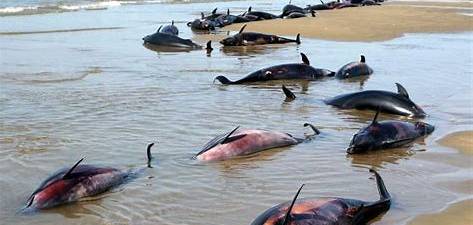
Faced with the resurgence of cetacean strandings on the Atlantic coast on both sides of the Pyrenees, France, Portugal and Spain are united around a European program. Called Cetambicion , the project aims to better supervise fishing practices, carry out scientific studies to assess the state of health of the marine ecosystem, make proposals serving to better protect marine mammals and ensure the interface with those involved in fishing.
Annick Girardin, Minister of the Sea since 2020, and Luis Planas Puchades, Minister of Agriculture, Fisheries and Food of Spain will be in charge of piloting this program. They will work in collaboration with their Portuguese counterpart as well as public research and conservation organizations, professionals and NGOs.
Funded by the European Union since 2020 and planned to last until the end of 2022, the Cetambicion program aims to identify the causes of the multiple strandings and to take corrective measures. The creation of such a program was highly necessary because the situation is worsening as noted by Willy Dabin, engineer at the Pelagis observatory: “ Some 400 dolphins died of accidental captures since January 1 out of around 500 stranding reports, it is as much in less than two months as in the smallest years of costing, which has existed since the 1980s ”.
Initial studies show that industrial fishing and accidental catches pose a real problem. The vast majority of stranded cetaceans bore capture marks. This is why, faced with indignation and complaints from various NGOs, the public authorities have proposed solutions to remedy them. First of all, fishing boats have been required since the start of 2021 to be equipped with "pingers". They are sound repellents for marine animals. Then, since January 2019, fishermen have been required to report any incidental capture.
However, the effectiveness of the measures is hardly obvious and it appears above all that the directives are not followed by the facts. The Sea Shepherd association reported that in 2019 less than ten declarations would have been recorded " for more than 10,000 catches estimated by scientists, or 0.001% of declared catches " The association does not grant, moreover, more credit to sound repellents.
In the end, if this program is welcome, the task will not be easy for Minister Annick Girardin and his counterparts. The challenge will be to find effective and productive common ground between, on the one hand, fishermen accused of destroying and, on the other, NGOs and associations protecting biodiversity. If Cetambicion does not quickly become a force for satisfactory proposals, it is likely to crystallize anger in each of the camps.
Posted on 2021-04-02 19:45








Comments